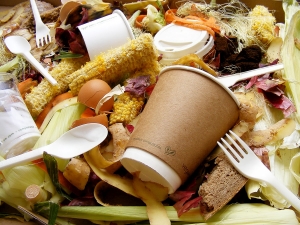Compostable coffee cups present a sustainable solution to waste caused by takeaway drinks packaging in foodservice environments like office blocks, universities and hospitals, says the Bio-based and Biodegradable Industries Association (BBIA).
In an article in The Times yesterday (21 March), Viridor Chief Executive Ian MacAulay stated that due to the cost of recycling them the best solution for single-use disposable coffee cups is to incinerate them to generate energy.
Traditional packaging materials, with composites such as paper and plastics in the same item, are indeed difficult to recycle. Most foodservice packaging in the UK goes to landfill or incineration as, when combined, the easily recycled materials of card and plastic contaminate one another, with food and drink residue adding to the mix.
Producers of these single-use cups are paying a tax to recycle these cups through packaging recovery notes (PRNs) but are not getting the recycling they are paying for, due to the process’s current lack of cost-benefit to recyclers.
 Compostable coffee cups and food service packaging, on the other hand, are available on the market in the UK and can be recycled back to the soil from which they came to create a circular recovery.
Compostable coffee cups and food service packaging, on the other hand, are available on the market in the UK and can be recycled back to the soil from which they came to create a circular recovery.
Compostable packaging is an extremely practical solution for closed environments like offices, catering, airports and closed events, where the waste stream can be most effectively controlled and the resulting waste directed to effective recovery via composting.
There are many examples of food service packaging made from compostable materials making a big difference, with the London 2012 Olympics and last year’s Milan Expo showing that they can work on a large scale. At these events, using compostable packaging worked well to reduce residual waste generation.
Eilidh Brunton, Group Recycling Consultant at BBIA member and eco-friendly packaging and catering disposables producer Vegware, said:
“It’s not just cups – recycling is a major challenge for all conventional foodservice disposables. Compostable packaging is the only solution to zero waste in foodservice. This is an existing and real solution, already in use in offices, universities and hospitals across the UK. One large Canary Wharf office composts 2.3 tonnes of used compostable packaging each month; Cambridge University diverts 1.5 tonnes a month to a local composter.
“Starting up just eight years ago, Vegware now holds around two per cent of the UK’s foodservice catering disposables market, illustrating the appetite for our sustainable packaging and practical waste support. In response to huge demand following the media attention, we will now be setting up new trade waste routes all around the UK for compostable packaging and food waste.”
Andy Sweetman, Chairman of BBIA, said:
“At the present time, compostable products do not claim to present an immediate solution to the issue of high street retail, as it cannot be ensured that they will enter the food waste stream. To get compostable materials to soil the UK needs good, ubiquitous food waste collection systems to be put in place. This will ensure that the compostable materials help to facilitate the wider collection of organic waste and are not sent to traditional plastics recycling.
“However the growing success of compostable foodservice packaging being effectively recovered in closed-loop settings provides a real beacon for how the recovery system can be developed on a wider scale too.”
The full press release can be downloaded as a PDF here.
Source
Bio-based and Biodegradable Industries Association, press release, 2016-03-22.
Supplier
Bio-based and Biodegradable Industries Association (BBIA)
University of Cambridge (UK)
Vegware
Share
Renewable Carbon News – Daily Newsletter
Subscribe to our daily email newsletter – the world's leading newsletter on renewable materials and chemicals












